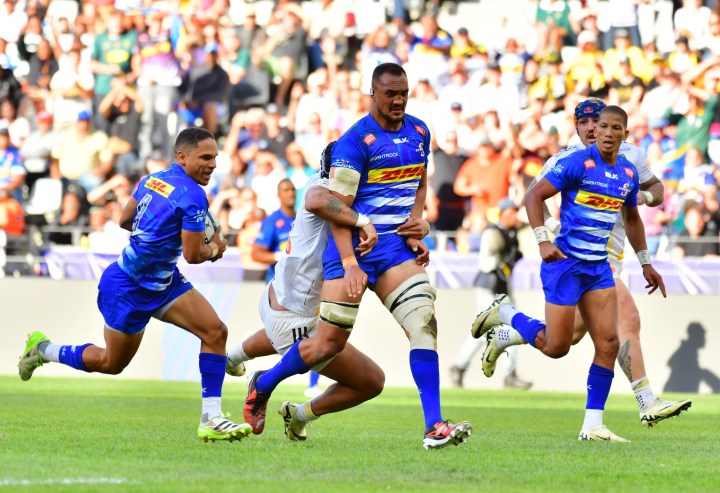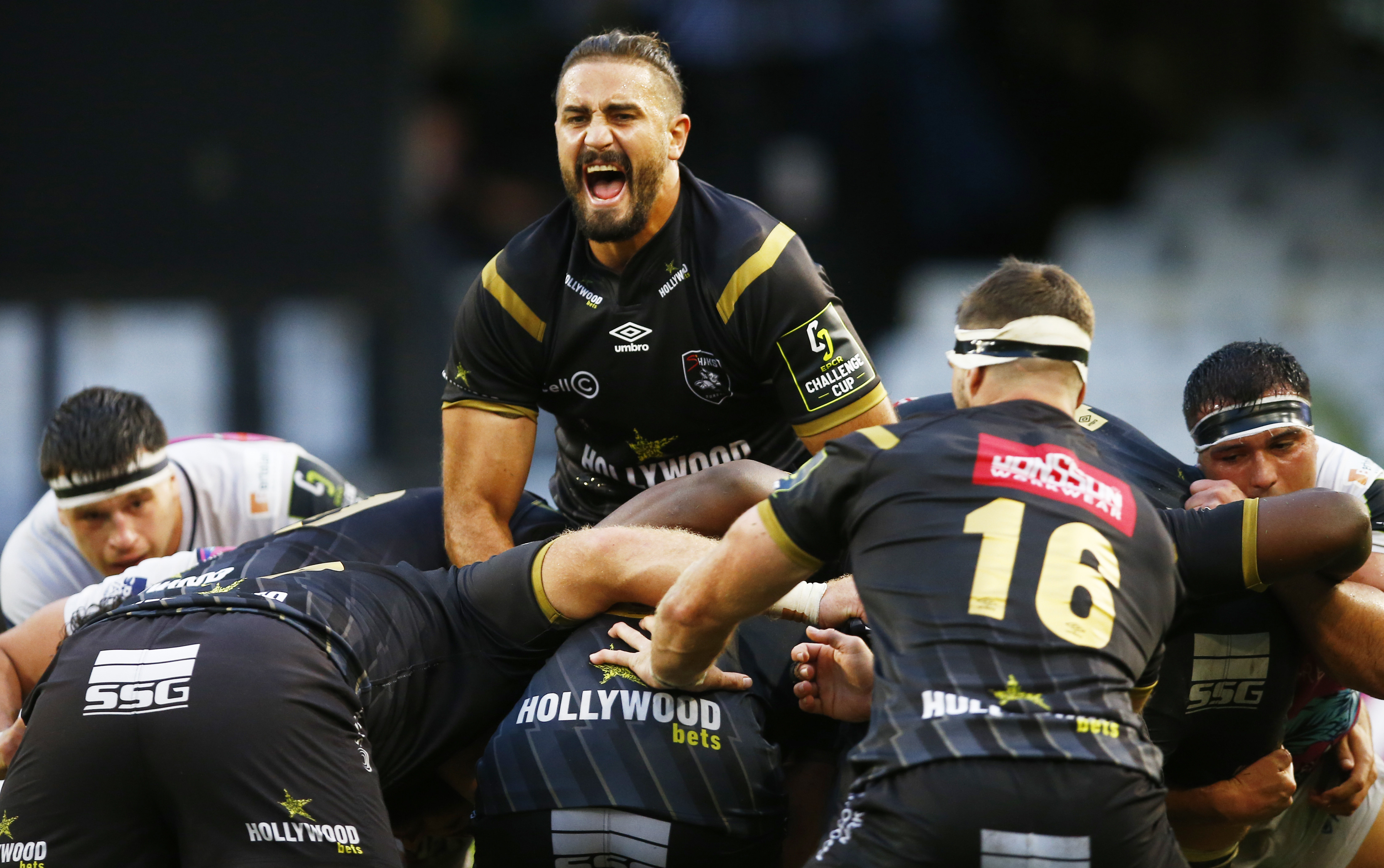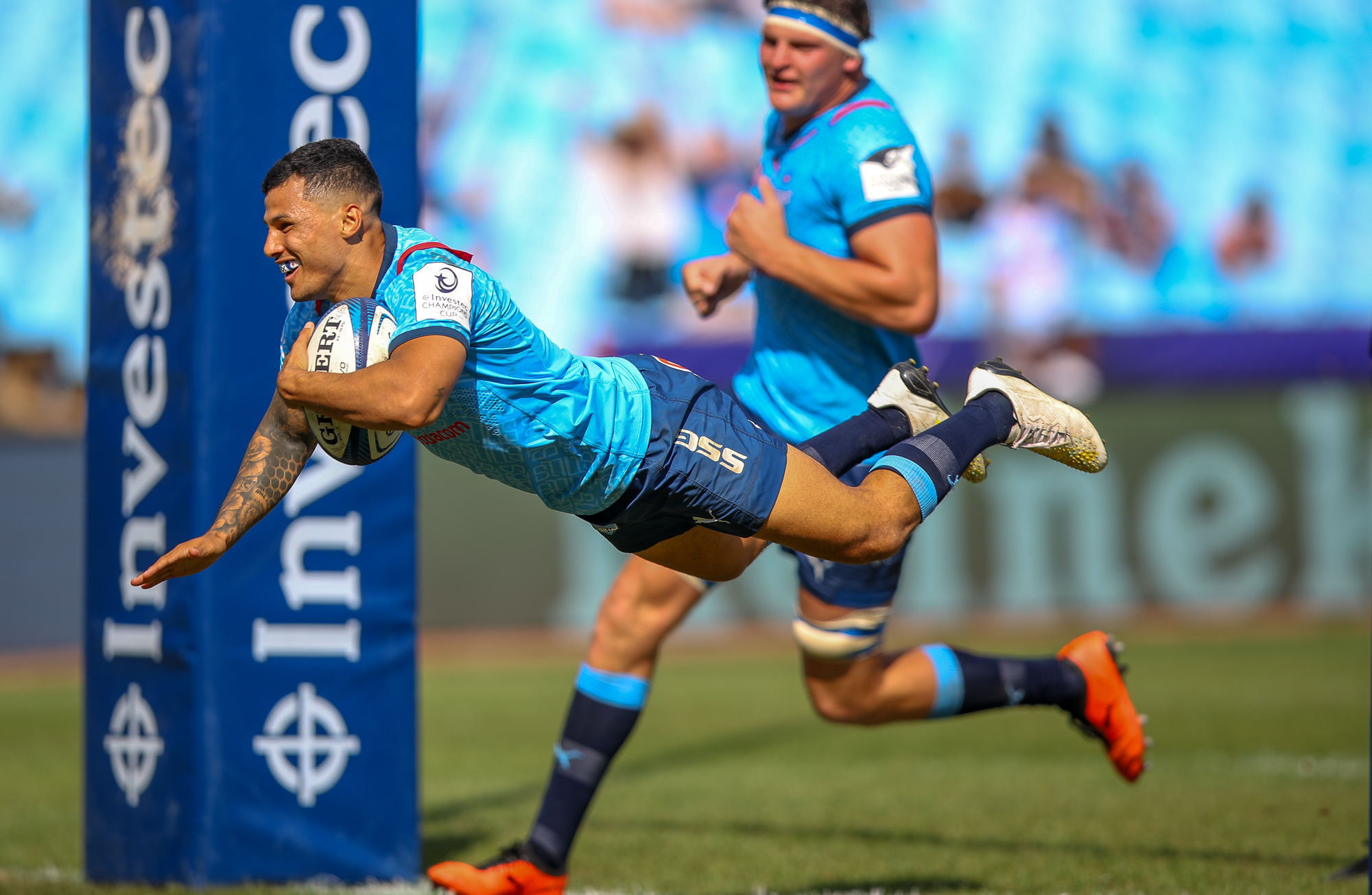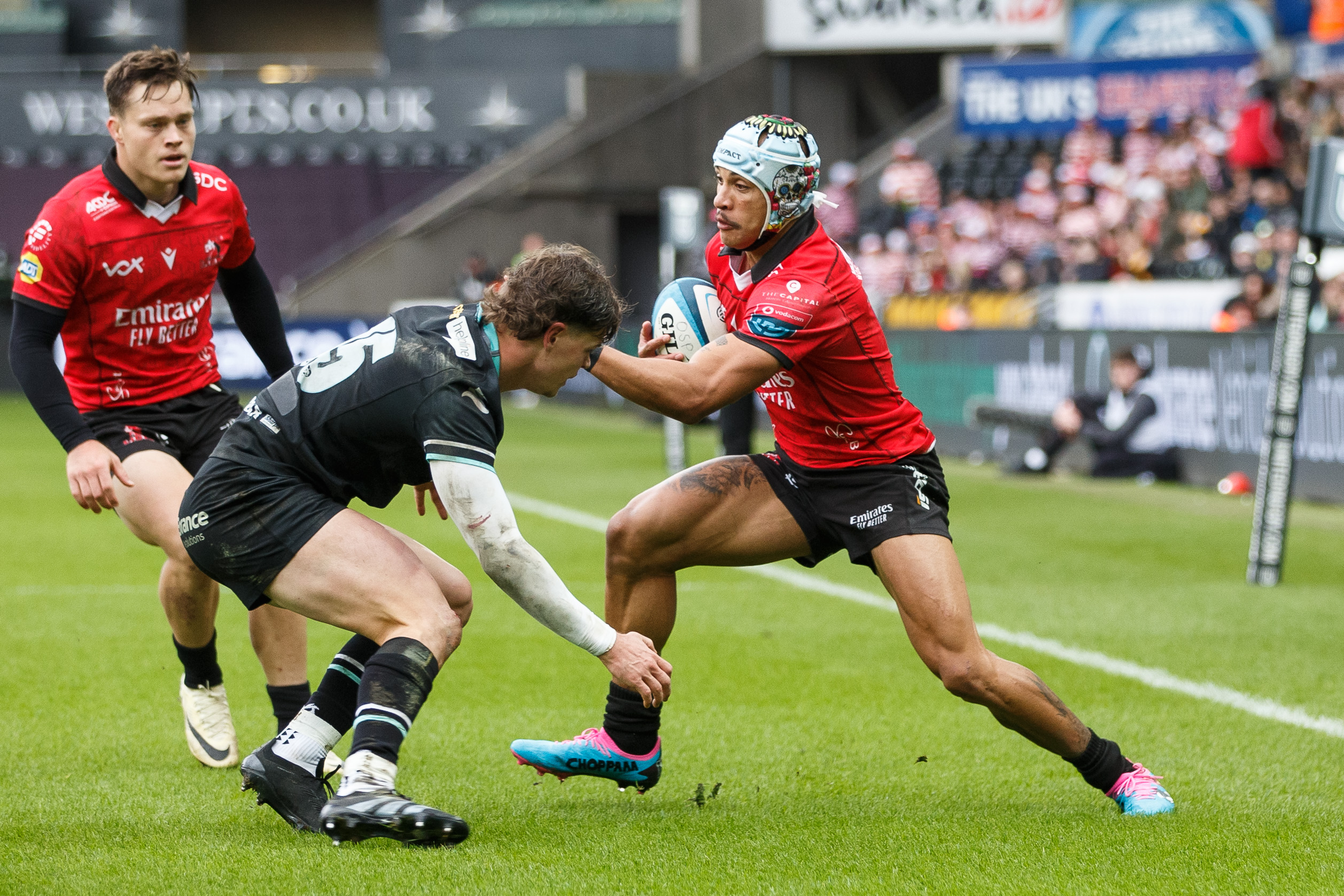RUGBY FUNDS ANALYSIS
The introduction of equity partners in SA Rugby has changed the landscape for Saru

The growing tension between the four major rugby unions in the country and the South African Rugby Union could lead to more transparency and dialogue.
The old saying goes, “be careful what you wish for”, and that is proving to be true in the South African rugby ecosystem with an increasingly tense relationship unfolding between the major characters.
And it’s in large part down to the introduction of new, powerful voices in the game in the form of the private equity investors at the Bulls, Lions, Sharks and Stormers.
Additional sources of money were desperately needed to alleviate the financial burden on the South African Rugby Union (Saru), especially in the wake of the Covid pandemic. Private equity partners were, and are, the logical way to go.
The major teams now all have private backers who have injected much-needed cash reserves and business plans.
But the trade-off, at least from a Saru perspective, is that these new power brokers come with strong voices and demands. They no longer simply accept the status quo of the business model where most of the finances in the game pass down to the unions at Saru’s discretion.

Sharks lock Gerbrandt Grobler urges his team on during the EPCR Challenge Cup clash against Zebre at Kings Park. (Photo: Steve Haag Sports / Gallo Images)
They want more money, more say, more transparency and a stronger voice in how Saru’s business deals are managed.
It has led to an understandable bumping of heads in recent weeks and months, because Saru does not represent the needs of only four unions, but of 15.
New model
Regardless, the big four are flexing their muscles. This is not only a battle over Test match fees, but about the entire model of how funding works in South African Rugby.
Read more in Daily Maverick: Rugby unions unhappy about the Bok Test fee, but miss the point that it’s for the benefit of all
The Sharks, through their US-based investor – MVM Holdings headed by New York-based, South African-born Marco Masotti – have been particularly strident.
Their leadership and willingness to question, possibly even badger Saru on several issues, has emboldened others. Lions backer Altmann Allers and the Bulls’ Patrice Motsepe and Johann Rupert, through Bulls board chairperson Johan van Zyl, signed a letter in February asking for an urgent meeting and including a long list of detailed demands.
And the Stormers, who recently concluded an equity sale to Red Disa Investments, which is a consortium headed by financial services magnate Johan le Roux, have now also joined the “uprising’.

Bulls scrumhalf Embrose Papier scores in the Investec Champions Cup knockout game against Lyon at Loftus Versfeld (Photo: Gordon Arons / Gallo Images)
There is now a unified approach from the four major unions in their dealings with Saru.
An insider at one of the unions told Daily Maverick: “We need a pro forma income statement where we can say to Saru, ‘please tell us how much we should be spending on players, how much we should be getting from sponsors and tickets sales etc,’ then determine the broadcast revenue distribution according to the pro forma model.
“The business model, at the current level of broadcast income, simply does not make enough money.”
This attitude has led to some anger at Saru, which as an organisation does not run for its own profit, but to facilitate the running of professional rugby in the country. There is also some understandable frustration that the four unions have created the impression that Saru is somehow denying them funds.
Almost all Saru’s annual income of about R1.2-billion is spent on funding national teams; competitions such as the Currie Cup, United Rugby Championship (URC), European Professional Club Rugby (EPCR) tournaments; insurance; image rights fees; and disbursements to the 15 unions that make up rugby’s ecosystem.
Antiquated structure
In another anachronism from the amateur era, Saru’s hierarchy is constitutionally required to deal only with the unions, such as the Bulls Rugby Union, and not with the professional companies that fund them.
That means there is a layer of amateur officials between Saru’s top table and the equity partners at those four unions. It’s hardly an ideal structure in a modern world.
It’s also a source of irritation for the money men at the unions, because they don’t have direct access to Saru president Mark Alexander and chief executive Rian Oberholzer.
“There are ongoing conversations with Saru. The big unions are on the same page, and we’ll continue to engage them,” Stormers CEO Le Roux said.
“We operate in an environment where a large part of our revenue, specifically through the URC and EPCR, flows back to SA Rugby (Saru) rather than to us.

Lions wing Edwill van der Merwe steps inside Jack Walsh of Ospreys during the United Rugby Championship match between Ospreys and Emirates Lions in Swansea, Wales. (Photo: Gruffydd Thomas / Gallo Images)
“This creates financial uncertainty when we’re looking for stability. I look forward to continued engagement with SA Rugby along with the other international franchises to debate a financial model that allows us to field competitive sides in Europe without the onus of having to fund continued losses.
“What we don’t like is the uncertainty. A very big part of the broadcast revenue flows via Saru in different forms. It’s not contractual and it can change.
“It’s very difficult to invest in a business and keep funding losses if you’re not sure about almost half of your revenue – including the Test match, the Players of National Interest (Poni) payments, insurance and distribution.
“If you add up all of that, it’s almost half our revenue. Not having a clear line of sight on what those numbers look like going into the future is a real problem for a business.”
Saddle up
In their letter to Saru, several issues were raised and while fees for hosting Test matches have been in the spotlight, the dissatisfaction runs deeper.
Despite being asked to pay a collective fee of R85-million to host the six home Springbok Tests in 2024, the unions will all still make a substantial income from those Tests.
While that has been a good headline, the real battle is about more fundamental and regular issues.
Poni payments are a real source of unhappiness. The idea is that a union contracts a player who is on the Bok radar, and depending on his perceived value, Saru pays a contribution to his salary.
The gripe is that Saru is providing these Poni deals without a proper contract in place.
In their letter sent to Saru in February, the unions claimed the Poni agreements to be “ambiguous” and “poorly drafted”.
For instance, Daily Maverick knows of several players who were signed on three-year deals on the basis that their club salaries would be topped up by Saru.
But after a year their Poni deals fell away, or were significantly reduced, after it was communicated by a sudden email from Saru that circumstances had changed. That leaves the union having to cover the shortfall for the remaining time on the contract.
The unions claim there is no binding contract in place between Saru and themselves about contribution and length of Poni players’ funding, and they want to change that.
Saru, conversely, has dismissed the claims that its approach to Poni contraction is done on whim. Perhaps the truth lies somewhere in between.
Equity and competition money
Saru itself is in the final stages of concluding an equity sale to US consortium Ackerley Sports Group. This is no lightweight operation, as it is also a shareholder in the San Francisco 49ers, one of the most successful American Football teams in the league.
Read more in Daily Maverick: Equity purchase of Saru’s commercial activities brings rugby tensions to the boil
But the clubs are also demanding more information on that deal, especially how it relates to financial planning.
There is a sense here that the big unions want to be part of the negotiations to ensure more money flows their way.
But the reality is that Saru has the mandate to negotiate the deal on behalf of South African Rugby as a whole. Having five or six voices at the table will not work. Also, if unions sit in on the negotiations then all 15 must, not only the big four.
The big four also want clarity on when Saru will start earning revenue from the URC and EPCR competitions. Currently, Saru pays R300-million annually so that the four unions, and the Cheetahs, can play in Europe.
“The whole model must be discussed and there is a lot to be said for transparency and for us to understand where the medium- and long-term funding is going,” Le Roux said.
“There is a big desire for the clubs to have line of sight on those revenues. It’s very difficult for us now, sitting at the bottom getting a trickle-down of what’s left, as opposed to having a share from the top where we know that whatever the revenue is, we get a percentage of it.
“That would make it much easier for us to invest in our businesses.
“It’s not a fight between the big and small unions, but more understanding the different roles and financial needs.”
Saru has provided most of these details to its general council and doesn’t have to engage with the equity parties at the four big unions. But it might be time to change its approach in the best interests of South African rugby.
And it might also be time for the big four to meet Saru halfway. DM
















 Become an Insider
Become an Insider
I was been involved with rugby sponsorship for many years ( since Fedsure sponsored the Stormers). The business models were developed for an amateur game and are not appropriate for the professional era. Unless there is a major overhaul we are going to see the big teams doing something like the major soccer teams did with the establishment of the English Premier League
“The Sharks, through their US-based investor – MVM Holdings headed by New York-based, South African-born Marco Masotti – have been particularly strident”
Seems to me that Masotti maybe needs to be a little less strident, considering what a load of rubbish he seems to have bought for the Sharks, who just seem to be a bunch of overpaid losers? Big Money doesn’t necessarily mean Big Success – in fact, the Stormers model seems to be far the better one, so let them lead the discussions and you keep a bit quieter, or our rugby might lose the conveyor belt of incredible talent we’ve got and we end up bringing in overseas talent like Plumtree. Oh, right…